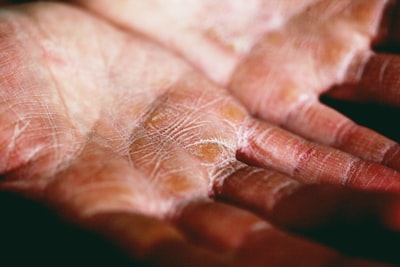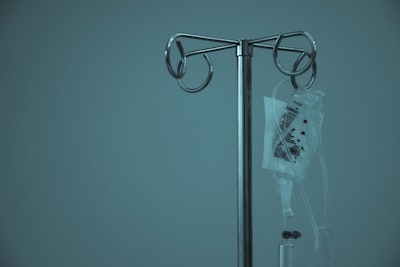Understanding the Potential of IV Fluids for Dehydration in Elderly
Dehydration is a common problem among the elderly, and it can lead to serious health issues if left unchecked. As we age, our bodies have a harder time retaining fluids, which makes dehydration more prevalent. In this blog, we will dive into the science behind dehydration and why it is more common in the elderly. We will also explore the symptoms of dehydration, both mild and severe, so that you can recognize them early on. Additionally, we will discuss preventative measures that you can take to keep yourself or your loved ones hydrated, including portable consumer grade IV drink fluids for dehydration in the eldery, water intake and dietary choices. Lastly, we will cover intravenous (IV) fluids for dehydration and how they can be beneficial for the elderly. So let's get started!
Understanding Dehydration in the Elderly
As people age, their risk of dehydration increases due to changes in their thirst perception. This puts older adults at a higher risk of experiencing symptoms such as dry mouth and dark-colored urine. Hydration is crucial for the proper functioning of the kidneys and can help prevent complications like constipation. It's important to note that certain medications, like diuretics, can further increase the risk of dehydration in the elderly. Providing adequate fluids, such as water, and considering alternatives like pedialyte can help prevent dehydration-related issues. Additionally, keeping a cool environment with the help of air conditioners can reduce water loss through sweating. Remember to encourage regular fluid intake and address any concerns about dehydration promptly.
The Science Behind Dehydration
Dehydration occurs when there is an imbalance between fluid intake and loss, resulting in a decrease in body water. Factors such as excessive sweating, vomiting, and diarrhea contribute to fluid loss and dehydration. The body regulates fluid balance through mechanisms like thirst and the production of concentrated urine. Electrolytes play a vital role in maintaining proper hydration levels. Understanding the science behind dehydration helps identify and address the issue effectively.
Why is Dehydration More Prevalent in the Elderly?
Dehydration is more prevalent in the elderly due to factors like decreased fluid intake, impaired thirst sensation, medications with diuretic effects, and physiological changes in the kidneys. Older adults should pay close attention to their fluid intake to prevent dehydration-related complications.
Recognizing Dehydration Symptoms in the Elderly
Recognizing dehydration symptoms in the elderly is crucial for timely intervention and prevention of complications. Mild to moderate dehydration may present as dry mouth, fatigue, and reduced urine output. Severe dehydration can manifest as dizziness, confusion, rapid heartbeat, and low blood pressure. Caregivers should be aware of these symptoms and monitor fluid intake in the elderly. Prompt recognition and treatment of dehydration can prevent hospitalization and other serious complications.
Mild to Moderate Symptoms of Dehydration
Mild to moderate dehydration symptoms in the elderly may include increased thirst, dry skin, and infrequent urination. Fatigue, headache, and muscle weakness are common signs of mild to moderate dehydration. Older adults may experience lightheadedness and a decrease in urine output when mildly dehydrated. Paying attention to these symptoms can help prevent dehydration from progressing to a severe stage. Encouraging regular fluid intake is crucial to maintaining proper hydration levels in the elderly.
Severe Symptoms of Dehydration
Severe dehydration can lead to extreme thirst, rapid breathing, and a weak or irregular heartbeat. The elderly may experience confusion, irritability, and sunken eyes as warning signs. Low blood pressure, rapid weight loss, and dark-colored urine are also indicators of severe dehydration. Immediate medical attention is crucial to treat this condition and prevent further complications. In severe cases, intravenous (IV) fluids may be necessary to rehydrate older adults.
Prevention of Dehydration in the Elderly
Regular fluid intake is crucial for preventing dehydration in the elderly. Encouraging older adults to drink plenty of water and other hydrating beverages is essential. Monitoring fluid intake and offering reminders can help ensure adequate hydration. Including hydrating foods like watermelon and celery in the diet can boost overall water intake. Proper hydration plays a vital role in preventing complications and promoting overall well-being in the elderly.
Importance of Regular Fluid Intake
Older adults should aim to consume an appropriate amount of water based on their individual needs. The general guideline is to drink at least 8 cups (64 ounces) of fluids per day. Paying close attention to fluid intake can help prevent the risk of dehydration in the elderly. Providing water and other proven electrolyte-laden beverages throughout the day promotes regular fluid intake. Adequate hydration supports various bodily functions and helps prevent dehydration-related issues.
Role of Diet in Preventing Dehydration
A well-balanced diet that includes hydrating foods can contribute to overall hydration in the elderly. Fruits and vegetables with high water content can supplement fluid intake, while potassium-rich foods like bananas help maintain electrolyte balance. It's important to avoid excessive consumption of diuretic substances like caffeine to prevent fluid loss. Combining proper fluid intake with a hydrating diet significantly reduces the risk of dehydration.
Intravenous (IV) Fluids for Dehydration
In severe cases of dehydration, intravenous (IV) fluids may be necessary to quickly replenish lost fluids. IV fluids deliver fluids directly into the bloodstream, ensuring rapid hydration. Hospitalization or emergency room visits may be required for administering IV fluids or portable IV drink fluids to dehydrated older adults. Monitoring electrolyte levels is essential when providing IV fluids for dehydration treatment. Prompt intervention with IV fluids can prevent dehydration-related complications in the elderly.
Why are IV Fluids Beneficial?
IV fluids offer numerous benefits in dehydration treatment. They effectively rehydrate the body and deliver electrolytes quickly. Moreover, IV fluids ensure timely medication delivery and can help prevent complications associated with dehydration. Additionally, IV fluids may be beneficial in treating other medical conditions, such as heart failure and stroke. As a result, IV fluids are an important part of the treatment plan for elderly patients with dehydration.
Precautions When Providing IV Fluids
Before providing intravenous (IV) fluids to a dehydrated older adult, it is essential to assess eligibility and ensure that the patient is capable of receiving fluid infusion. In addition, caregivers must be aware of potential complications associated with IV fluids, such as infection and blood clots. Caregivers should also monitor electrolyte levels regularly when providing IV fluids to dehydrated elders in order to prevent complications. NEVER administer or attempt to administer any kind of IV fluid to anyone without the previous consultation of your primary healthcare provider or medical professional!
Can IV Fluids be Used as a Preventative Measure Against Dehydration in the Elderly?
Using IV fluids as a preventative measure against dehydration in the elderly is possible. However, it's essential to identify and address the underlying cause of dehydration. Encouraging fluid intake, monitoring medications, and consulting with a healthcare professional are other effective preventive measures.
Frequently Asked Questions
Will staying hydrated help you live longer?
Staying properly hydrated can have a positive impact on your overall health and longevity. Research shows that dehydration is linked to increased mortality in the elderly. By maintaining adequate hydration, you can also help prevent conditions like kidney stones and urinary tract infections. Drinking enough water is an easy and effective way to stay hydrated and promote longevity. [INSERT PRODUCT USP]
How long does it take for a human to become dehydrated?
The time it takes for a person to become dehydrated varies based on factors like age, activity level, and environment. Mild dehydration can occur in a few hours, while severe dehydration may develop within 24 hours. To prevent dehydration, it's important to drink fluids regularly throughout the day.
How can medication management prevent dehydration in the elderly?
Medication management plays a crucial role in preventing dehydration in the elderly. By monitoring medication side effects that may cause fluid loss, professional healthcare providers can adjust doses or switch to alternative medications. Regular check-ups help identify early signs of dehydration, while encouraging regular fluid intake helps prevent it. Always consult with your physician when it comes to medication intake and management as this is critical.
Conclusion
In conclusion, dehydration is a serious concern for the elderly, and it's important to recognize the symptoms and take preventive measures to ensure their well-being. Regular fluid intake and a balanced diet play a crucial role in preventing dehydration. However, in severe cases, intravenous (IV) fluids can be highly beneficial in restoring hydration levels quickly and effectively. IV fluids provide the necessary nutrients and electrolytes directly into the bloodstream, ensuring rapid absorption and rehydration. While IV fluids can be used as a treatment option, they may also be considered as a preventative measure for those at high risk of dehydration. It's essential to consult with healthcare professionals to determine the best approach for managing and preventing dehydration in the elderly.
DISCLAIMER: THIS WEBSITE DOES NOT PROVIDE MEDICAL ADVICE
The information, including but not limited to, text, graphics, images and other material contained on this website are for informational purposes only. No material on this site is intended to be a substitute for professional medical advice, diagnosis or treatment. Always seek the advice of your physician or other qualified health care provider with any questions you may have regarding a medical condition or treatment and before undertaking a new health care regimen, and never disregard professional medical advice or delay in seeking it because of something you have read on this website.





